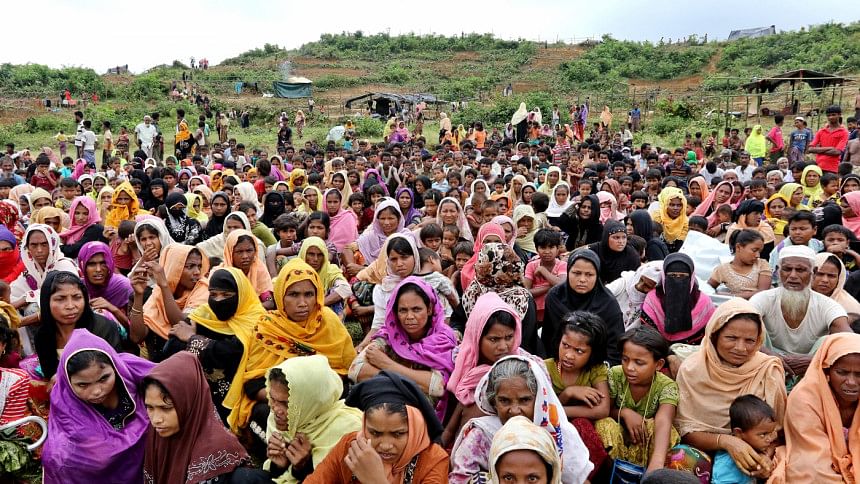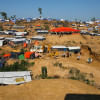UN role in repatriation

Dhaka's call to involve the United Nations in the negotiations on Rohingya repatriation is a well-judged one. Bangladesh must also insist that Myanmar agrees to a multilateral agreement. Myanmar had earlier opted for a bilateral solution. It has also, reportedly, proposed to take back only those who fled to Bangladesh after October 9 last year, which cannot be acceptable to Bangladesh. There are over 900,000 forcibly displaced Myanmar nationals that now reside in Bangladesh who must all be taken back. Under these circumstances, a UN involvement would certainly lend weight to any agreement and improve chances of resolving the problem.
As the two countries work out the details of repatriation, it's disturbing to know that the Myanmar army has reinvigorated its campaign against the Rohingyas in Rakhine State, triggering a fresh exodus and further aggravating the security situation in Bangladesh. We need to convince our neighbours, especially India, of the gravity of the situation. The Indian finance minister's comment that stability in Bangladesh is in India's own interest is reassuring but we would like manifest action on its part to ensure that our stability is not hampered by a situation created by Myanmar and outside our control.
There is no other solution to the immediate problem other than a quick repatriation of the Rohingyas. Along with bilateral negotiations, Bangladesh must mobilise international support through vigorous diplomatic efforts for a peaceful solution to the crisis, which includes an immediate end to the violence and creating an environment for a safe return of the displaced people. Myanmar must end its rhetoric as a stable Rohingya situation would also be in its own interest.

 For all latest news, follow The Daily Star's Google News channel.
For all latest news, follow The Daily Star's Google News channel. 







Comments